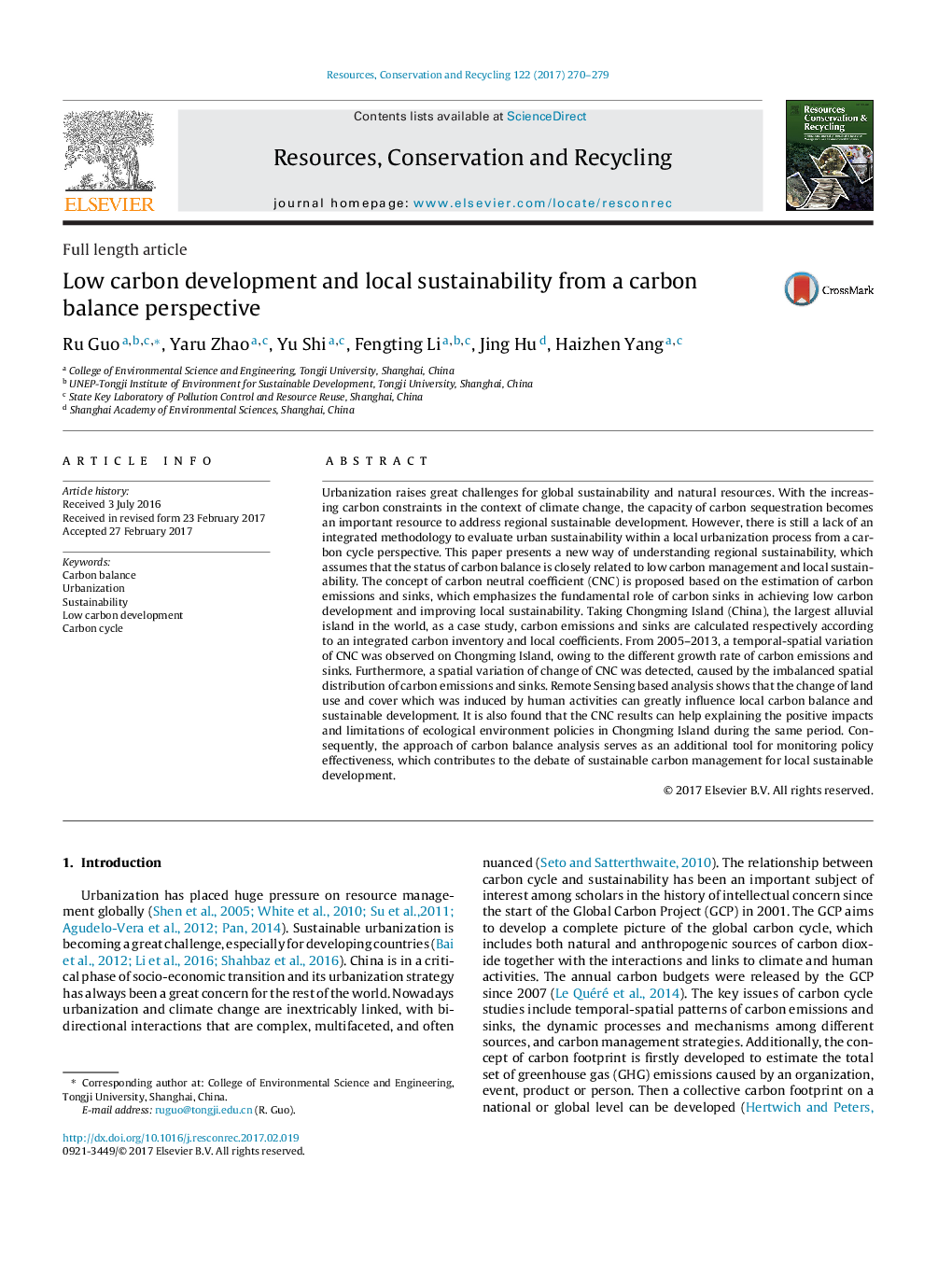ترجمه فارسی عنوان مقاله
توسعه کربن کم و پایداری محلی از دیدگاه توازن کربن
عنوان انگلیسی
Low carbon development and local sustainability from a carbon balance perspective
| کد مقاله | سال انتشار | تعداد صفحات مقاله انگلیسی |
|---|---|---|
| 114274 | 2017 | 10 صفحه PDF |
منبع

Publisher : Elsevier - Science Direct (الزویر - ساینس دایرکت)
Journal : Resources, Conservation and Recycling, Volume 122, July 2017, Pages 270-279
ترجمه کلمات کلیدی
تعادل کربن، شهرنشینی، پایداری، توسعه کربن کم، چرخه کربن،
کلمات کلیدی انگلیسی
Carbon balance; Urbanization; Sustainability; Low carbon development; Carbon cycle;

